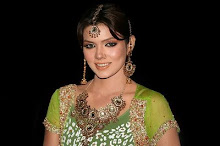The Republic of India is a country that occupies a greater part of Indian subcontinent. It borders Pakistan and Afghanistan in the northwest, the People’s Republic of China, Nepal, and Bhutan in the north, and Bangladesh and Myanmar in the east. India’s coastline stretches for over seven thousand kilometers. Its neighbours in the Indian Ocean are the island nations of the Maldives in the southwest, Sri Lanka in the south, and Indonesia in the southeast. India is the second most populous country in the world, with a population of over one billion and is the seventh largest country by geographical area. It is a constitutional republic consisting of twenty eight states and seven union territories. The word India derives from the Old Persian cognate for the Sanskrit word Sindhu, the Indus river. The Constitution of India also recognizes Bhārat listen (help·info) as an official name with equal status.
India’s Independence Day is celebrated on August 15 to commemorate its independence from British rule and its birth as a sovereign nation on that day in 1947. The day is a national holiday in India. All over the country, flag-hoisting ceremonies are conducted by the local administration in attendance. The main event takes place in New Delhi, where the Prime Minister hoists the National Flag at the Red Fort and delivers a nationally televised speech from its ramparts. In his speech, he highlights the achievements of his government during the past year, raises important issues and gives a call for further development. The Prime Minister also pays his tribute to leaders of the freedom struggle. A colourful pageant showcasing India’s cultural diversity, symbolic depictions of the country’s advances in science and technology, and a joint display of India’s military capabilities by the armed forces are an essential part of the Independence Day celebrations.














No comments:
Post a Comment